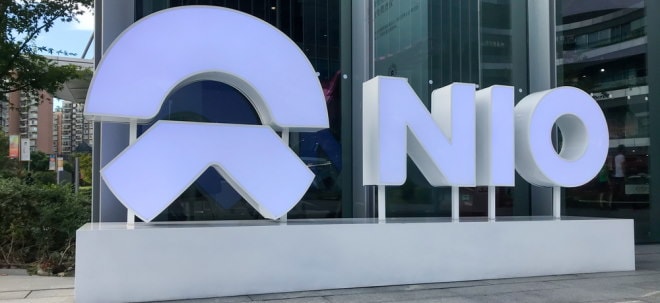Stop Freaking Out About the Market (Read This Instead)
When the stock market took a nosedive earlier this year, my phone practically caught fire. Friends, family — even the woman who cuts my hair — they were all asking me versions of the exact same question:"Is my money truly safe in the stock market?"And let me just say — I get it.There's something deeply unsettling about logging in to look at your brokerage account or 401(k) and seeing thousands of dollars erased. Watching your money shrink feels personal. It just hits different.I've been there, too. My own 401(k) balance took the same hit. And as someone who spends a good chunk of her life talking about money, even I felt that pit in my stomach. "What if this time is different?" whispers that little anxious voice we all have.But here's what I always say, and I'll say it again here for everyone who's feeling the nerves: If the stock market doesn't bounce back — if, in 20 or 30 years, it hasn't recovered from this dip — well, we've got much bigger problems than our retirement savings.I know, I know — that sounds a little dramatic. But think about it: The stock market isn't just numbers ticking up and down on a screen. It's not some abstract random number generator. The stock market is made up of actual businesses — real, live companies, with real employees making real products and profits. If the market permanently collapses, it means U.S. business and industry as a whole has permanently failed.And like I said... in that scenario, your 401(k) is probably the least of your worries.So let's take a deep breath together, because this story isn't actually about disaster scenarios. It's about reality, history, and smart moves you can make to weather these storms — and yes, even come out stronger on the other side.Why Your Fear Makes Perfect SenseIs it scary to keep investing when the market is falling?Absolutely.But history — and some pretty compelling math — has shown that continuing to invest through market dips is one of the most powerful ways to grow your wealth over time.But before I get into all that, I want to make one thing crystal clear up front: feeling uneasy about investing during a market downturn doesn't mean you're doing something wrong. It means you're human.I've spent years studying markets and investing professionally, and I'm here to let you in on a little secret: Everyone feels nervous when stocks drop. Everyone. Even seasoned investors who have weathered multiple crashes still get a little queasy seeing that graph nosedive.There's actually a reason for this, one baked deep into our DNA. Behavioral economists call it loss aversion, and it's basically our brains screaming at us: "Hey! We're losing something valuable, and I don't like it!" In fact, studies show that humans feel the pain of losing money about twice as intensely as the joy of gaining it. Twice as intensely. No wonder it feels so awful.You know my friend John? I've mentioned him before — he's a walking, talking barometer of how not to react to market moves. John panics every single time the market dips. He's convinced every drop means another 2008, another Great Depression, another disaster. His impulse is always the same: Sell now, protect whatever's left, avoid more pain. I love John dearly, but he's become my own personal "contrarian indicator" because when he's scared, I know it's probably time to hold — or even buy.But that doesn't mean John's feelings aren't valid. And he's certainly not alone. He's just a more honest (and maybe extreme) version of what so many of us secretly feel.The fear you feel when markets turn south is perfectly natural. It's your brain's way of trying to protect you from danger. But in investing, that instinct to run from immediate danger can backfire dramatically. Selling in panic locks in your losses, guarantees missed opportunities, and takes you out of the game when the market inevitably rebounds.What History (Really) Tells Us About Market DropsWhen markets drop sharply, there's always a part of our brains that wonders: What if this time is different? What if this is "the one" — the downturn we never bounce back from?Believe me, I get it. It feels shaky out there. You're not crazy for worrying.But here's the good news (and it's actually really good news): There's no historical precedent for that worry. Not one.Let's take a breath and look at the evidence:Every downturn we've ever experienced has been followed by recovery and new market highs. Every single one. Even the really nasty ones — especially the nasty ones.The Great Depression (1929-1939): Stocks lost almost 90% of their value. It was catastrophic, frightening, and truly felt like the end of the financial world as we knew it. But it wasn't. Eventually, the market recovered completely and soared to heights nobody back then imagined.Black Monday (1987): The Dow plunged 22% in just one day. People panicked. Experts warned of doom. But the market quietly climbed back, hitting new highs within two short years. (Fun fact: This crash happened just two weeks before I was born. I cannot even begin to imagine how stressful that must have been for my parents.)The 2008 Financial Crisis (2007-2009): The world felt uncertain, and stocks lost more than half their value. Yet, within a few years, the market had fully recovered and has since gone on to double and even triple in value, rewarding those who stayed calm and invested.COVID Crash (2020): Markets fell 34% almost overnight. It was scary — I remember that pit-in-the-stomach feeling myself. But only five months later, stocks had not only bounced back but were hitting record highs again. Anyone who continued investing in the S&P 500 through the drop more than doubled that money in less than five years.Throughout history, stocks have endured wars, recessions, terrorist attacks, pandemics, natural disasters, and financial upheavals — and each time they've bounced back. Not because the market is magic, but because humans are resilient, adaptable, and committed to moving forward.And here's one of my favorite financial facts of all time: The stock market has never delivered a negative return over any 20-year period. Ever. In other words, if your investment horizon is measured in decades — and retirement investing usually is — history says your risk of losing money approaches zero.Why? Because investing in stocks means investing in real businesses. Businesses exist to solve problems, grow, innovate, and yes, to create profit. Betting against stocks long-term is essentially betting against human progress itself.And as I said at the beginning, if we truly hit a moment where progress stops completely — well, your 401(k) balance probably won't be the first thing on your mind.History clearly shows that markets recover, economies adapt, and humanity marches forward. So yes, it feels scary, but remember: We're not betting on charts and graphs. We're betting on us.And that's always been a bet worth making.Why Staying Invested During a Drop is Actually SmartSo we've agreed: market dips feel scary. But here's the twist most people don't realize:These downturns actually help your investments grow faster. (Yes, really.)Here's why:When stock prices drop, your same monthly 401(k) contribution buys you more shares. It's kind of like walking into your favorite store during a huge sale. Suddenly your dollars stretch further, letting you snag more of something you already wanted — except in this case, you're buying ownership in businesses poised to recover and grow.This is called dollar-cost averaging, and it's powerful. Because you invest the same amount regularly, you naturally buy fewer shares when prices are high and more shares when prices are low — like right now. Over time, this smooths out the ups and downs and typically leads to better long-term returns.Let me give you a quick example:Imagine you invest $500 per month into your 401(k). When stock prices are high, your $500 might buy just five shares at $100 each. But after a downturn, when those shares drop to $50 each, the same $500 contribution suddenly buys you 10 shares. Eventually, when the market rebounds (as history shows it always does), those extra shares mean a much bigger balance in your account.That's how downturns actually accelerate your wealth over time. They're stressful in the moment — but incredibly rewarding if you keep investing through them.And here's the truth you might need to hear most clearly: Doing nothing — just continuing to invest regularly — is often the smartest and easiest decision you can make during a downturn. You don't have to time anything, predict the future, or stress about what might happen tomorrow. All you have to do is keep going.In other words, when the market feels shaky, your best move might just be... staying put.So, What Should You Actually Do Right Now?If you're feeling jittery, that's okay. But here are three simple moves that'll help you regain control and feel better — even when the market is feeling anything but calm.1) Keep Investing (And Automate It, If Possible)This is crucial. If you're contributing regularly to your 401(k) or IRA, please, please keep doing it. And if you're not, now's actually a great time to start. When your contributions are automatic — pulled straight from your paycheck or bank account — you're less likely to second-guess yourself during scary moments. (Trust me, it helps.)2) Don't Panic-SellI get it. Selling feels like taking control — like protecting yourself from further pain. But when you sell during a downturn, you're locking in losses and missing the recovery that history tells us is on its way. Take a breath. Walk away from your balance screen for a bit. Remind yourself that markets have always bounced back stronger.3) Make Sure You're Properly DiversifiedThis one's practical and easy. Take a peek at your investment accounts. Is your money spread out across different types of investments — U.S. stocks, international stocks, bonds, and cash? If yes, great! You're already set up well. If not, now might be a good time to shift a bit. Diversification helps smooth out the ride, giving your portfolio the resilience to weather storms like this.These three steps aren't complicated, but they're powerful. They'll give you clarity and comfort in a chaotic market.You're Investing in Something Bigger Than the Stock MarketHere's the bottom line...Investing isn't just about money — it's about belief. Belief in growth, in resilience, in progress. When we invest, we're placing a bet not on numbers or charts, but on people and companies and ideas. We're betting that the future — despite setbacks and temporary chaos — is brighter than today.And historically? That's always been a winning bet.So yes, the market feels scary right now. But we've been here before. Our parents were here before. Our grandparents were here before. And each time, we've moved forward, rebounded, and built back stronger.Decades from now, the anxiety you feel today will just be one small moment in your financial journey. You won't remember the fear of investing during a market dip nearly as much as you'll notice how your steady, patient contributions have compounded into real, lasting wealth.So keep breathing, keep investing, and keep believing. You're not betting on charts and graphs. You're betting on yourself, on me, on all of us — and on our shared future.And that's always been a bet worth making.Want the latest recommendations from Zacks Investment Research? Today, you can download 7 Best Stocks for the Next 30 Days. Click to get this free reportThis article originally published on Zacks Investment Research (zacks.com).Zacks Investment ResearchWeiter zum vollständigen Artikel bei Zacks
Quelle: Zacks
Nachrichten zu The Market Limited Registered Shs
Keine Nachrichten im Zeitraum eines Jahres in dieser Kategorie verfügbar.
Eventuell finden Sie Nachrichten, die älter als ein Jahr sind, im Archiv
Analysen zu The Market Limited Registered Shs
Keine Analysen gefunden.

